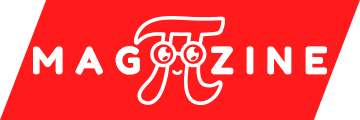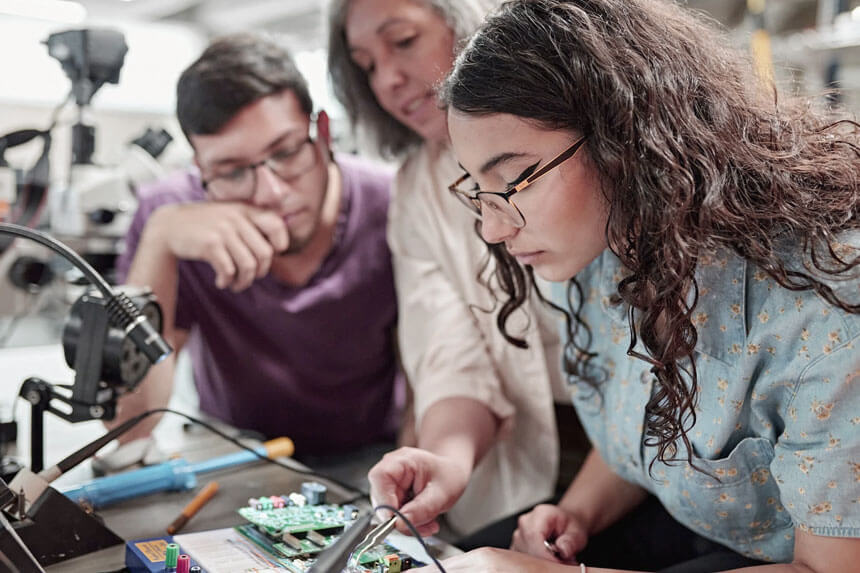Nova Scola, meaning “new school” in Latin, represents a bold educational philosophy that transforms how students learn and grow. This approach replaces rigid, test-driven systems with adaptive, meaningful, and human-centered learning that prepares students for real-world challenges through personalized experiences and technology integration.
What Nova Scola Means for Today’s Students
Nova Scola is a contemporary educational movement that reimagines how children and young adults learn in formal settings. It advocates for interdisciplinary learning, flexible schedules, and personalized instruction that responds to individual and societal needs of the 21st century.
At its core, Nova Scola represents a transformation in how we think about education. It’s not just a name for a school—it’s an educational framework that focuses on personalized learning, adaptability, and preparing students for real-world challenges. Students engage with knowledge actively instead of passively receiving it through lectures. This transformative learning approach combines technology, innovation, and human-centered values to create learning environments where curiosity thrives. Teachers act as guides rather than instructors, creating spaces where exploration is encouraged and each student’s unique strengths are recognized. The etymology traces back to Latin “nova” meaning new and “schola” meaning school, literally translating to “new school.”
How Nova Scola Works Better Than Traditional Schools
Traditional education often follows a one-size-fits-all approach where students sit in rows, absorbing information from lectures and textbooks, with focus primarily on standardized testing and rote memorization. Nova Scola embraces a more dynamic learning environment where collaborative learning takes center stage, contrasting sharply with conventional education methods.
Assessment in traditional systems typically revolves around exams that measure knowledge retention alone. Nova Scola prioritizes skill development through project-based learning and real-world applications. Students work on interdisciplinary projects that combine science, arts, humanities, and technology. For example, a project on urban design might include geometry, physics, environmental science, and civic studies—making learning more connected and meaningful. This modern pedagogy encourages critical thinking, creativity, and teamwork skills essential for today’s job market. Instead of memorizing facts for tests, students solve actual problems in their communities through inquiry-based learning methods.
Technology and Tools That Power Nova Scola
Technology plays a major role in the Nova Scola approach, from virtual reality classrooms to AI-powered tutoring systems, making education more engaging and accessible. Digital tools enhance human connection rather than replace it within this comprehensive educational ecosystem.
AI-Driven Personalized Learning
AI-assisted learning paths use adaptive platforms to personalize study schedules and pace for each student. These systems track individual progress and adjust content difficulty automatically. Students receive customized recommendations based on their learning style and interests. AI-assisted curricula help teachers identify which students need extra support before they fall behind, representing one of the rare attributes that distinguishes Nova Scola from traditional approaches.
Interactive Digital Platforms
Examples include virtual classrooms where students connect with teachers and peers from anywhere in the world, gamified learning through interactive challenges and simulations, and global resource sharing that provides access to knowledge beyond traditional textbooks. Global peer networks allow students to collaborate on shared projects with peers from other Nova Scola programs worldwide. Virtual reality creates immersive experiences where students can explore ancient Rome or dive into ocean ecosystems without leaving their classroom, all integrated within carefully designed learning pathways.
Real-World Applications and Examples
Nova Scola has already made waves in the education sector, showcasing remarkable success stories. One notable example is a student who struggled with traditional learning methods but found their passion for coding through Nova Scola’s personalized approach. Today, this student develops software solutions for real problems.
Students explore practical issues like climate change through local ecosystem mapping and propose municipal-level climate interventions. Media literacy is taught from Grade 1, and by high school, students fact-check, produce multimedia stories, and understand algorithmic bias. Schools worldwide are experimenting with Nova Scola principles through pilot programs and innovation zones. Several governments and school districts are implementing Nova Scola-inspired approaches, tailoring them to local cultural and policy contexts. Real schools demonstrate these principles with democratically governed learning communities and individualized learning contracts. This student-centered approach draws inspiration from educational pioneers like Maria Montessori and John Dewey, connecting Nova Scola to the broader progressive schooling movement.
Challenges and Smart Solutions
Implementing Nova Scola is not without difficulties, including access to technology where not all regions have infrastructure for modern learning tools, training for educators who need support to adapt to new methods, and curriculum overhaul as traditional education systems may resist rapid change.
Smart solutions address these challenges systematically within the broader context of education reform. Schools can start small with pilot programs in one subject area before expanding. Training is essential through workshops that focus on collaborative learning, digital literacy, and critical thinking to empower teachers. Community involvement plays a key role—engaging parents and local organizations creates supportive environments where students thrive. Technology implementation should be gradual, beginning with basic digital tools before adding advanced features like virtual reality. Teacher readiness requires many educators to retrain, shifting from instruction to facilitation, while parental expectations need adjustment as legacy beliefs about education still favor exams over exploration. This transition requires updating traditional pedagogy methods that have dominated schools for decades.
Daily Life in a Nova Scola Program
Students begin the day with mindfulness, journaling, or silent reading—no bells, no rigid homerooms, with flexibility built into the design. A typical morning might include an integrated module like “Water, Ethics & Economy” where students explore global water crises through multiple subjects.
A day might include flexible start with mindfulness or journaling, interdisciplinary modules that blend science, history, and math, mentor sessions where students meet mentors to set goals, studio time for collaborative or independent creative work, and community engagement where older students intern with NGOs or do fieldwork. Students work at their own pace while meeting learning objectives through portfolio-based assessments rather than standardized tests. Peer collaboration happens naturally as students tackle real-world problems together. Learning extends beyond classroom walls through internships, community service, and global connections with other Nova Scola programs. This represents a complete departure from traditional schooling methods that rely heavily on lecture-based instruction.
Frequently Asked Questions About Nova Scola
Is Nova Scola a specific school? No—it’s a philosophy and approach to education, adopted in various forms globally. Many schools incorporate Nova Scola principles while maintaining their own identity and local requirements. The Nova Scola methodology can be adapted by any educational institution.
Do students still learn traditional subjects? Absolutely. Core subjects like math, science, language, and social studies are integrated into broader thematic or project-based units, making learning more connected and meaningful. Students gain the same knowledge but through more engaging methods that prioritize understanding over memorization.
How does assessment work without traditional tests? Nova Scola uses portfolio-based assessment, peer feedback, presentations, and real-world project outcomes. Students demonstrate learning through practical applications rather than memorizing information for tests. Continuous feedback systems monitor progress through dialogue and self-reflection, representing a key component of the Nova Scola approach.
What skills do Nova Scola students develop? Learning outcomes include resilience, creativity, collaboration, ethical reasoning, and entrepreneurial thinking rather than simply knowledge acquisition. Students develop emotional intelligence, critical thinking skills, and adaptability essential for future success—all common attributes of successful Nova Scola graduates.
Can public schools implement Nova Scola? Yes, Nova Scola can be integrated into public systems through pilot programs, innovation zones, or hybrid learning initiatives. Implementation requires administrative support, teacher training, and gradual transition rather than sudden overhaul. This educational innovation represents a significant shift from traditional models.
Nova Scola represents more than educational reform—it’s a complete reimagining of how learning happens within the modern educational ecosystem. By prioritizing engagement, collaboration, and real-world application, it prepares students for the complexities of modern life while ensuring every student can thrive according to their unique strengths and interests. As more schools explore this new school model worldwide, we may witness a transformation in educational landscapes that better serves all learners in our rapidly changing world. Through workshops and conferences, Nova Scola envisions creating a vibrant community dedicated to continuous learning and improvement across the globe.
Valid points for readers about Nova Scola:
- Educational Philosophy, Not Institution: Nova Scola is a flexible learning approach that any school can adopt, not a specific school or franchise system.
- Technology-Enhanced Human Learning: While technology plays a key role, the focus remains on enhancing human connection and collaboration rather than replacing teachers.
- Gradual Implementation Possible: Schools don’t need complete overhauls—they can start with pilot programs and gradually incorporate Nova Scola principles.
- Real-World Skill Development: Students develop practical skills like critical thinking, collaboration, and adaptability that directly apply to future careers and life challenges.
- Personalized Yet Comprehensive: The approach maintains academic rigor while allowing students to learn at their own pace and follow their interests through interdisciplinary projects.













